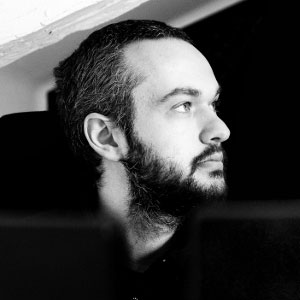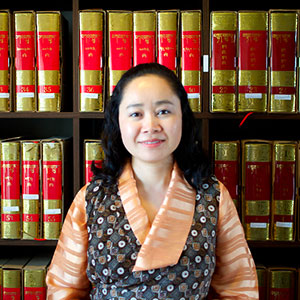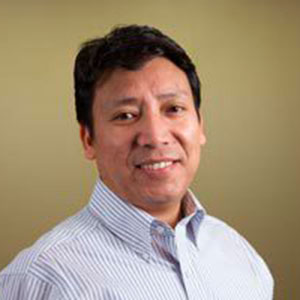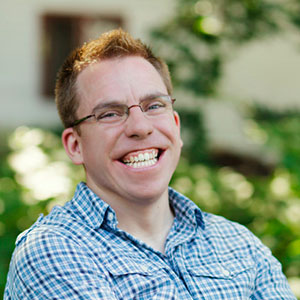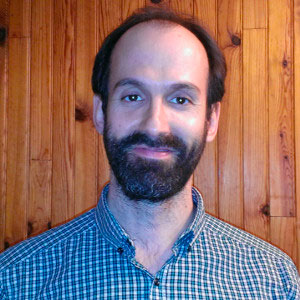Élie Roux
Since obtaining his Diplôme d'ingénieur in Télécom Bretagne (France), Élie has been excited to help cultural preservation through free software.
He first did so by creating a Gregorian Chant score engraving software that is now used by major publishing companies, encouraging the creation of a collaborative score repository and developing tools for the etymological hyphenation of liturgical latin.
Élie also developed free software for other issues he has a passion for, such as typography (with projects around LuaTeX), calendar calculation and astronomy (including the Tibetan Calendar), linguistics in general and Tibetan language in particular (Tibetan spellchecker, Tibetan collation, analysis and Unicode publication of parts of the Dunhuang corpus and publication of a verb database).
After 3 years developing a learning platform to train the French team for the International Olympiad in Informatics, Élie sees joining BDRC as a great opportunity to use and develop his skills and passion for the preservation of Buddhist teachings.
Élie Roux
Dechen Pema
Dechen has an M.A. in Tibetan Studies from the Central University for Nationalities in Beijing and an M.A. in Anthropology from the University of California at Berkeley. She worked for two years at the East Asian Library at UC Berkeley, where she learned skills in cataloguing, reference service, and collection development. She also instructed college-level Chinese language classes in the Department of East Asian Languages and Cultures at UC Berkeley. For the past eight years, she worked for various insurance companies as Office Manager in charge of daily office operation, staff supervision, compliance issues, and account receivables.
With her tri-lingual fluency in Tibetan, Chinese and English, as well as academic training in Tibetan Studies and years of work experience as Office Manager, Dechen is well prepared for her current work at BDRC as Director of Administration to direct and coordinate the organization's operations and communications.
Dechen Pema
Karma Gongde
Karma Gongde has worked with BDRC to catalog and create outlines for its vast collection of Tibetan texts since 2007. He also maintains the English and Hindi language collection of books at BDRC.
Karma received an Acharya (M.A.) degree in Buddhist philosophy and Tibetan language in 1991 and a Bachelor of Education (B.Ed.) degree in 1992 from the Central University of Tibetan Studies (CUTS) in Sarnath, Varanasi, India. He studied extensively with his first cousin, the late Ven. Pema Gyaltsen, who was the Tibetan Language Department Chair at CUTS from 1982 to 2001.
As a Post-Graduate Teacher in the Central School for Tibetans (CST), Karma taught Tibetan language, poetry, and history; the history of Buddhism; and Buddhist dialectics and philosophy at CST Mundgod, Gurupura, and Dolanji (1992-1997).
From 1997 to 2002 he was a Research Assistant in the CIHTS Dictionary Unit, working with Chief Editor J.S. Negi to compile references, check Tibetan equivalents, and proofread Vols. 5-11 of the 16-volume Tibetan-Sanskrit Dictionary. He taught supplementary classes in Tibetan grammar, poetry, and prose for graduate and undergraduate students at CIHTS.
Since moving to the USA in 2002, Karma has taught Tibetan language as co-instructor of the summer Tibetan language intensive at Padma Samye Ling, a retreat center in upstate NY; as a Language Partner in the Directed Independent Language Study (DILS) at Yale University; and as a tutor to individual students. He has proofread and corrected texts for Asian Classics Input Project (ACIP) and worked on translation projects for authors Mikel Dunham and Douglas Veenhof.
Karma Gongde
Travis DeTour
In his endeavors at BDRC, Travis brings together his years of experience working in the software industry with his passion for Buddhism and meditation. He graduated from the Rochester Institute of Technology in 2004 with a degree in Software Engineering. After his studies at engineering school Travis spent 3 months on a leadership expedition through the backcountry of Mexico with the National Outdoor Leadership School. After returning from his outdoor adventures Travis began his career working at IBM as a Tools Support Engineer and then swiftly moved on and worked at Vistaprint as a Release Engineer for the next 7 years. During that time, Travis became interested in yoga and meditation and in 2010 discovered his love for Dharma at the Boston Shambhala Center where he began to devote himself to the study and practice of Buddhism and meditation.
In 2014 Travis connected with Jeffrey Wallman through a member of the Shambhala community and has been working with BDRC ever since.
Travis DeTour
Nicolas Berger
Nicolas Berger holds a PhD in Computer Science from the University of Nantes, France, where he has spent 4 years both researching at the Laboratoire d'Informatique de Nantes-Atlantique and teaching at the Faculty of Science and Technology. His specialization in the field of Constraint Programming has lead him to focus on the design of specific yet simple algorithmic languages in a variety of topics including web development. As a freelance web developer since 2012, he has been working with graphic designers and communication agencies from France to Japan through Switzerland, where his expertise in development has constantly been much appreciated.
More than fifteen years of interest in Buddhism give Nicolas a deep motivation for helping BDRC achieve its mission of preserving and disseminating Buddhist literature. Being personally interested in directly studying Pali, Chinese and Tibetan original sources, working on BDRC's Buddhist Universal Digital Archive (BUDA) project is like a dream come true! Developing BUDA also provides an opportunity to significantly advance Semantic Web technology, another field of research that interests him. Putting the most recent technologies at the service of the most ancient wisdom moves Nicolas close to the center of his own ikigai, "the reason for which you get up in the morning".





